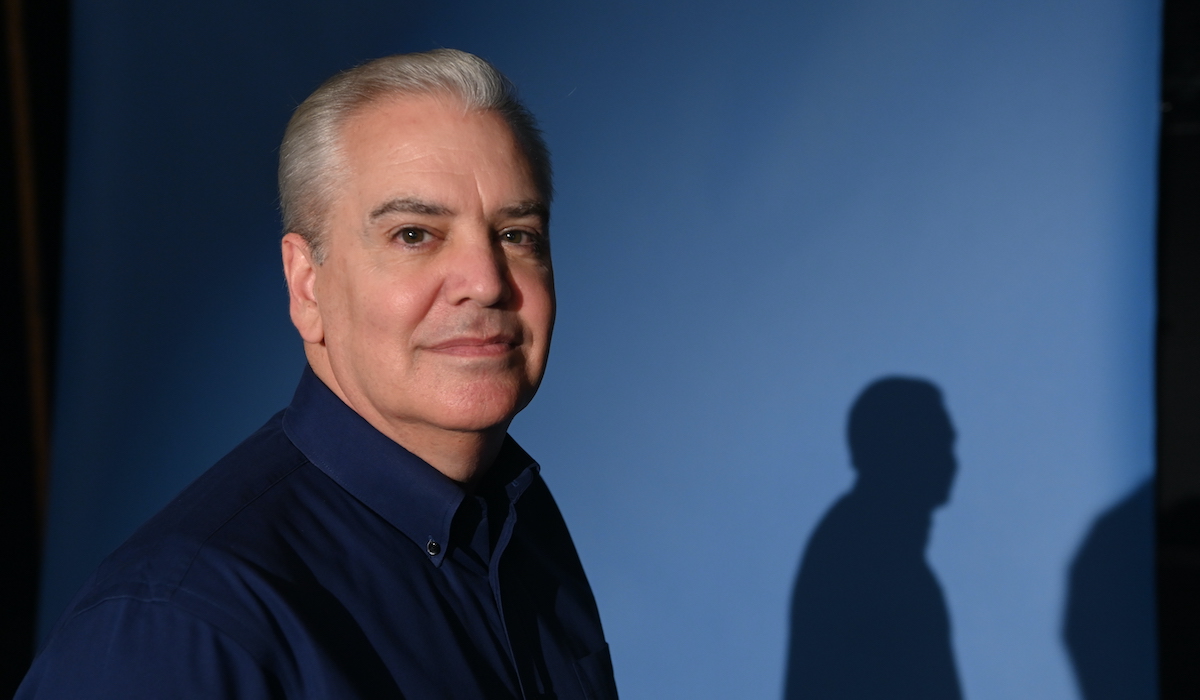

Decades of work by Catholic University Psychology Professor David Jobes, Ph.D., A.B.P.P., to advance evidence-based and patient-centered suicide-focused clinical treatments is being honored by The National Register of Health Service Psychologists, the largest credentialing organization of its type in the country.
Jobes will formally receive the 2022 Alfred Wellner Award for Lifetime Achievement (Research) during the group’s annual professional development conference in Washington, D.C. later this year. The National Register of Health Service Psychologists identifies the nation’s best psychologists and Jobes has been credentialed by the organization since 2000.
“My entire life’s work has been at Catholic University so it reflects well on the university and on my lab in particular. I couldn’t do what I do without the amazing students and faculty we have here at the University,” said Jobes upon the announcement.
Jobes has consulted with the National Institute of Mental Health, the Centers for Disease Control and Prevention, the Federal Bureau of Investigation, and is recognized as a “Highly Qualified Expert” by the U.S. Army Intelligence and Security Command. Dr. Jobes also serves multiple leadership roles with the American Foundation of Suicide Prevention (AFSP), including Chair of the AFSP Public Policy Council that has played a key role advancing the creation of the 988 National Suicide Prevention Lifeline. Jobes, who is Board certified in clinical psychology by the American Board of Professional Psychology, still sees patients at his private practice in the Washington, D.C. metropolitan area.
Much of Jobes’ reputation as one of the nation’s preeminent suicidologists is based on his development of the widely used clinical intervention CAMS (Collaborative Assessment and Management of Suicidality) developed at the University’s Suicide Prevention Laboratory (SPL). CAMS allows patients to direct their journey toward recovery, with their provider often literally sitting at their side to develop personalized treatment plan focused on issues that make them suicidal. Most of Jobes’ students are involved in supporting CAMS clinical trials, with undergraduates assisting with data entry and graduate students ensuring that clinicians in the trials are adhering to the CAMS framework.
“From the undergraduates to the master’s students to the PhD students in Catholic University’s Suicide Prevention Lab, we are all passionate about helping people who suffer and struggle, who think about suicide, and walking them back from the brink and helping to save their lives,” said Jobes.
Catholic University’s Suicide Prevention Lab is currently overseeing three National Institute of Mental Health (NIMH) funded CAMS clinical trials at multiple hospital systems across the country including Cleveland Clinic and Massachusetts General Hospital and another major multisite study with college students at four universities. A fourth study, funded by the VA system, is being conducted in San Diego where two of his graduate students are assigned.
Approximately 30,000 clinicians worldwide have received CAMS training and they have seen so much success at emergency departments, universities, and with veterans that Jobes has worked with that he is now adapting the program to meet the needs of minors. A recent New York Times profile of the mental health crisis among teenagers lists CAMS as among several widely used treatment options and Jobes said he is fine-tuning a protocol specifically designed to incorporate the parent-child relationship including a feasibility study for 5-11 year olds.
“A big part of working with minors is working with their parents…The treatment must be focused on the child with the parents in a supporting role. Although the vast majority of parents are deeply invested in their children’s best interests, we also have to have specific protocols to address parents who may sabotage treatment,” said Jobes.
Jobes said that expanding access to outpatient treatment is especially pressing as it is common for people, including parents and their children, suffering from suicidal ideation to wait many hours before receiving needed interventions. Jobes is involved in adapting CAMS to a suicide prevention specific mobile tablet application currently in NIMH-funded clinical trials called Jaspr Health that is designed to promote patients’ mental well-being while they are in the waiting room and collect key assessment information that can inform an optimal treatment plan.
Jobes advocates for out-patient treatments as generally better for patients and overwhelmed hospital systems, but he said finding outpatient care can take many weeks and even months to get an initial appointment with a community mental health center and patients are often not then matched to proper treatments. Jobes sees promise in suicide-focused crisis care centers, like the CAMS-approved Hope Institute in Perrysburg, Ohio that aims to ensure patients with a referral see a clinician within 24 business hours and provides outpatient treatment that has been shown to stabilize people who are suicidal in 5 to 6 weeks of intensive treatment.
With National Suicide Awareness Month beginning with this week’s National Suicide Awareness Week, Jobes said that in the wake of the pandemic there is growing awareness and growing need for evidence-based mental health resources such as CAMS. He will be a featured expert in a new documentary called Facing Suicide which will premiere Tuesday, Sept 13 on the PBS network. Although recent research shows suicide rates have surprisingly declined over the past two years, Jobes said that he fears that the numbers are likely much higher because many deaths such as opiode overdoses may not be being counted as suicides.
“There’s no question that with the pandemic there’s been increases in anxiety, depression, substance abuse, distress, and suicidal ideation. We’ve seen increases in distressed youth and emergency department utilitization among young suicidal people,” said Jobes.
Jobes said that growing demand on the nation’s already strained mental health resources is both a challenge and an opportunity for clinicians to find innovative systems-level responses to provide consistent and competent care.
“It’s going to be a difficult next few years but I’m also hopeful that with growing awareness of the absence of an actual safety net, more resources like the Hope Institute, retreat centers, or mobile crisis response will be more available and accessible to all those who need life-saving help,” said Jobes.